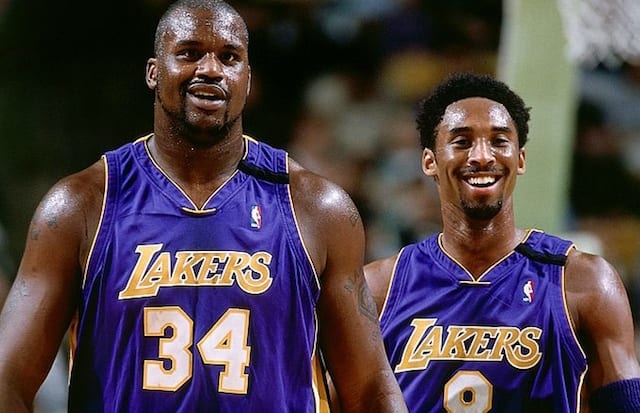The Los Angeles Lakers have long been synonymous with basketball excellence, and their storied history is punctuated by three distinct eras that have shaped the franchise’s legacy. From the dazzling “Showtime” era of the 1980s to the dominant Shaq and Kobe dynasty of the early 2000s, and now to the LeBron James-led resurgence, the Lakers have consistently redefined greatness in the NBA. Each of these periods has not only brought championships to Los Angeles but has also left an indelible mark on the sport, influencing playing styles, fan engagement, and the very culture of basketball.
The Showtime Era
The Lakers of the 1980s personified “Showtime,” a version of basketball that was as dazzling as it was dominant. With Magic Johnson orchestrating from the point, Kareem Abdul-Jabbar anchoring the middle, and “Big Game” James Worthy at forward, and the legendary Pat Riley calling the shots from the bench, the Lakers would become a gold standard for the NBA.
The Lakers reached eight NBA Finals from 1980 through 1988, capturing five championships. Magic’s court vision and Kareem’s unstoppable skyhook were the very definitions of a mix of athleticism and precision that captured fans’ hearts and molded the modern NBA.
One of the defining moments of the era came in the 1980 NBA Finals when Magic, a rookie, played center in Game 6 against the Philadelphia 76ers. Johnson scored 42 points, grabbed 15 rebounds and dished out seven assists, leading the Lakers to their first title of the decade. The Showtime Lakers were not only basketball icons but also a cultural phenomenon, influencing everything from fashion to media coverage of the sport.
Shaq and Kobe, a Dynasty for the Ages
The next defining chapter in Lakers history was written in the late 1990s and into the 2000s, as the Lakers had at their helm the dynamic duo of Shaquille O’Neal and Kobe Bryant. Shaq was one of the most physically imposing players ever to take the court and Kobe would eventually become one of the most skilled and relentless players the game has ever seen. According to the experts at the Action Network, this was the single most dominant era in Lakers history.
The year 2000 saw Shaq and Kobe take the Lakers to their first NBA championship together, leading the team through a dynasty that won three back-to-back championships: 2000, 2001 and 2002. In all three series, Shaq took home the Finals MVP award for his dominant displays in the post. The factor that made O’Neal such a nightmare to opponents was the ability to overpower in-paint defenders and his 2000 season, in which he finished averaging 29.7 points, 13.6 rebounds and 3.8 blocks per game, stands as one of the most dominant seasons in NBA history.
But equally important to the Lakers’ success was Kobe Bryant’s relentless pursuit of greatness and his developing leadership qualities. By 2002, Kobe had begun to carve out his own legacy, often taking over games in crucial moments. Despite these tensions between the two stars, especially over the question of who was to take charge, their on-court chemistry powered a dynasty. Kobe Bryant’s persistence and clutch performances in the 2009 and 2010 Finals would bring two more championships to Los Angeles, and secured his status as one of the all-time great Lakers.
LeBron’s Arrival, a New Era of Greatness
With the addition of LeBron James, arguably one of the best players to have played the game of basketball, to their roster in 2018 came a new era of Lakers basketball. The versatility he provides as a player, coupled with great leadership and an even greater basketball IQ, adds more layers to an already richly storied legacy for the Lakers.
In his second season with the team, LeBron led the Lakers to their 17th championship in 2020, tying the franchise with the Boston Celtics for most championships in NBA history. LeBron’s leadership led the Lakers through the 2020 bubble playoffs.
Despite the many challenges presented by the COVID-19 pandemic and the extremely long layoff, LeBron willed the Lakers to victory over the Miami Heat in the NBA Finals. LeBron was named Finals MVP for the fourth time in his career, further helping his case as one of the all-time greats.
LeBron’s presence once again made the Lakers an NBA contender and brought new relevance to the franchise. As a player who elevates those around him while leading his team to victory, he has been nothing short of a symbol of excellence. With LeBron still going strong, this team’s future is as bright as can be, with a vision to add more championships to an already illustrious history.





